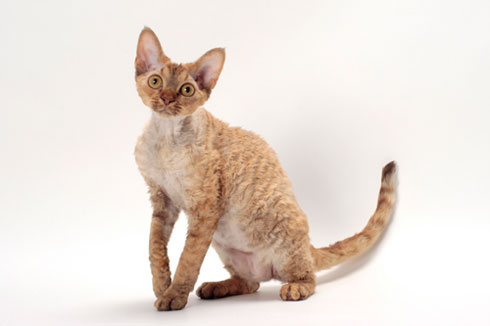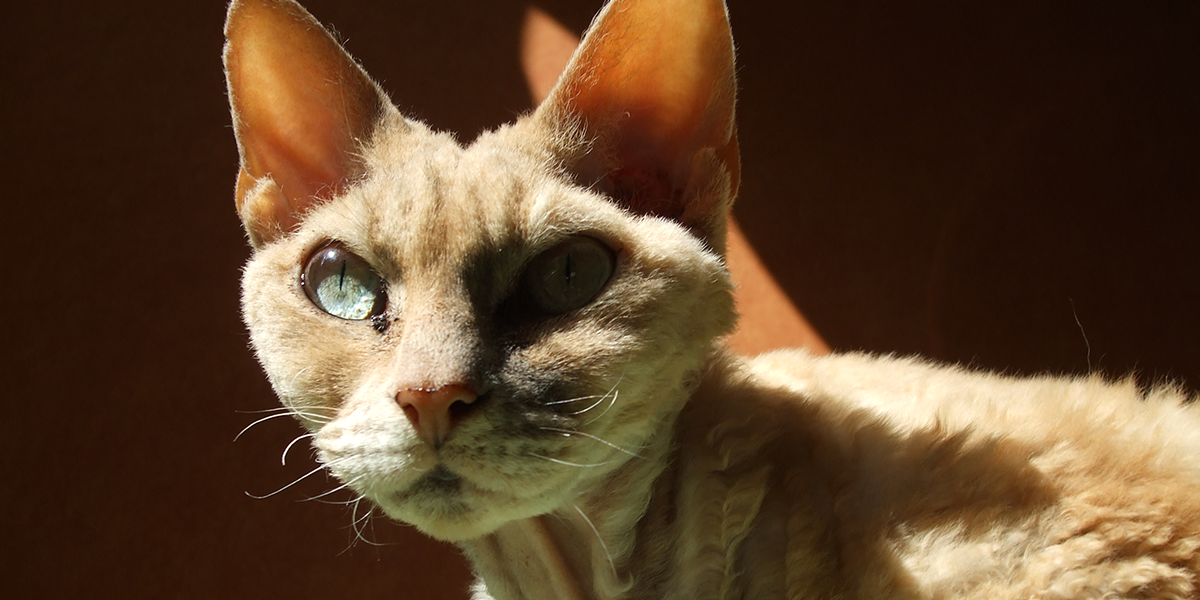Devon Rex myopathy is inherited as an autosomal recessive trait.
The disease is seen in Devon Rex cats and in Sphynx cats of either sex, with signs becoming apparent from 3 weeks to 6 months of age.
Recently the disease was shown to be due to a congenital myasthenic syndrome and the underlying genetic defect has been identified (a COLQ variant) and a genetic test is now available.
- Generalised muscle weakness
- Often marked weakness of the head and neck muscles, with dorsal protrusion of the shoulder blades.
- A high-stepping forelimb gait
- Low exercise tolerance with head bobbing, progressive protrusion of the shoulder blades, shortening of the stride, muscle tremors and eventual collapse
- At rest, cats often adopt a ‘dog-begging’ position, with their forepaws resting on a convenient raised object.
- Megaoesophagus may be present leading to regurgitation and sometimes aspiration pneumonia
- Difficulty in maintaining a normal head position may result in frequent episodes of laryngospasm after obstruction of the pharynx (throat) with food. This is the most usual cause of death in these cats
Clinical signs may be exacerbated by urination, defecation, stress, concurrent illness, cold ambient temperature, or excitement.
There is no treatment. Clinical signs may deteriorate up to 6-9 months of age, after which time the disease is usually stable or only slowly progressive. The course of the disease will depend on the severity of the myopathy, particularly the degree of pharyngeal involvement. Laryngospasm is often the cause of death.

Thank you for visiting our website, we hope you have found our information useful.
All our advice is freely accessible to everyone, wherever you are in the world. However, as a charity, we need your support to enable us to keep delivering high quality and up to date information for everyone. Please consider making a contribution, big or small, to keep our content free, accurate and relevant.
Support International Cat Care from as little £3
Thank you.
Donate Now


